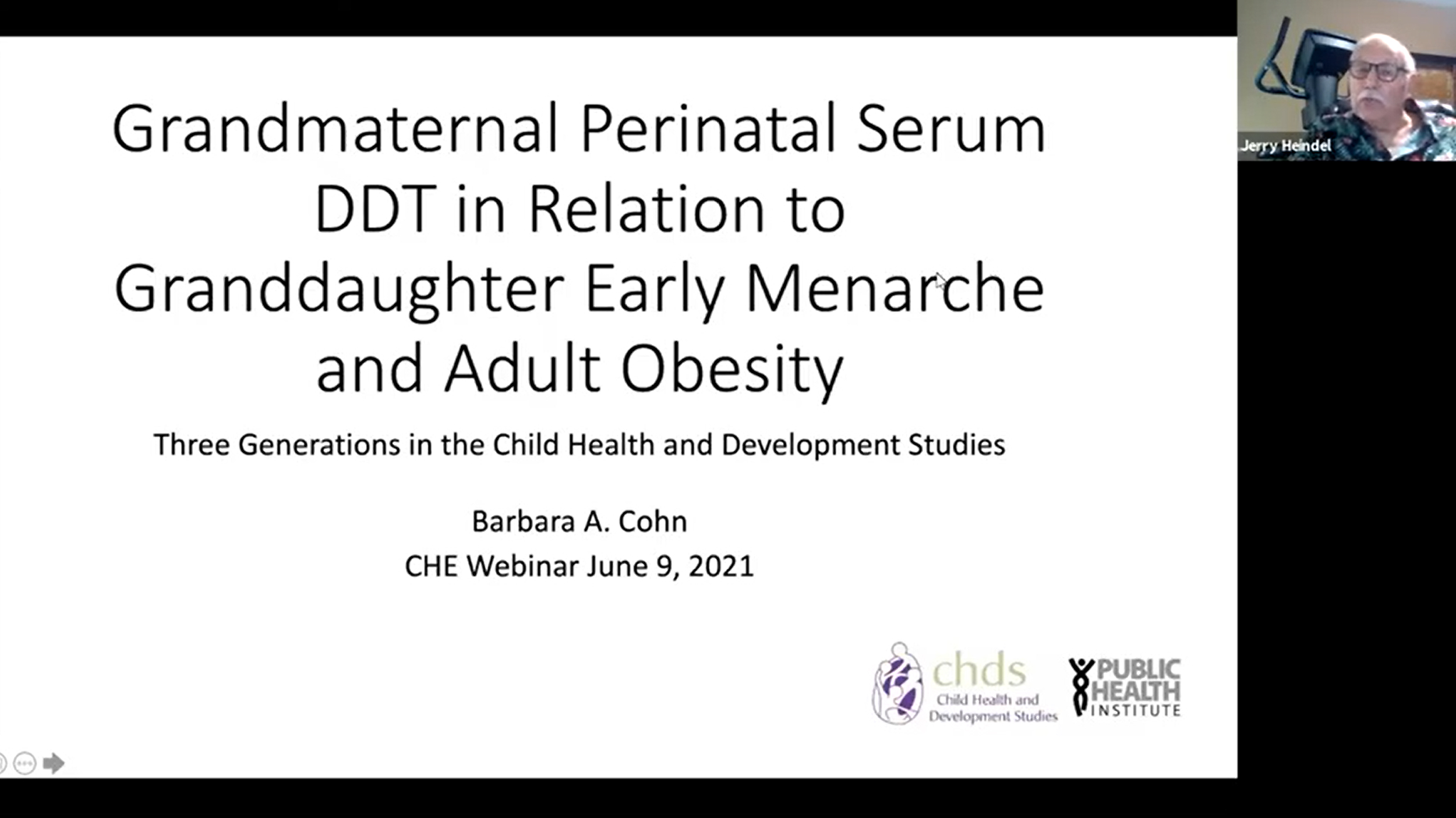
Webinar Recording: DDT Exposure in Grandmothers Linked to Obesity, Earlier Periods in Granddaughters
-
Focus Areas
Chronic Disease Prevention, Environmental Health -
Issues
Cancer, Reproductive & Sexual Health -
Expertise
Research – Surveillance -
Programs
Child Health and Development Studies

New Meaning of “Persistence” for an Environmental Chemical Banned 50 Years Ago
In this webinar, Dr. Cohn, director of PHI’s Child Health and Development Studies, discussed her recent research which found that young women today may face increased health risks linked to breast cancer due to their grandmothers’ exposure to the banned pesticide DDT.
Learn more about the studyThis was the first study to report on the health effects of exposure to a toxic environmental chemical over three human generations, and found that granddaughters whose grandmothers were exposed to the pesticide DDT have higher rates of obesity and earlier first menstrual periods. This may increase the granddaughters’ risk for breast cancer as well as high blood pressure, diabetes and other cardiometabolic diseases.
This research was conducted by PHI’s Child Health and Development Studies where 15,000 pregnant women donated blood samples during and shortly after their pregnancies in the 1960s. These women have been followed for their own health and the health of their daughters and granddaughters for over 60 years.
This work is the first to show such a 3 generation effect for a pesticide in humans and gives new meaning to the idea of “forever” chemicals. Dr. Cohn discussed what this study means for current generations of women and current environmental issues.
This webinar is one in a monthly series sponsored by the Collaborative on Health and the Environment’s EDC Strategies Partnership.

Featured Speaker: Barbara A. Cohn
Barbara A. Cohn, PhD, is director of the Child Health and Development Studies (CHDS) at PHI. CHDS is home to a groundbreaking study, which originated in 1959, designed to shed light on the various factors impacting health during pregnancy and early childhood. Between 1959 and 1967, 15,000 pregnant women and their families were enrolled. Researchers continue to study these rich data and conduct important follow-up studies to further examine how events during pregnancy impact the subsequent health of fathers, mothers and their children and grandchildren. Cohn consults with researchers around the world on the use of the CHDS data for health research.
In addition, Cohn directs research examining how pregnancy protects against breast cancer and influences other health problems in mothers and their children in order to identify natural protective mechanisms that can be used for prevention. She also investigates whether early life exposure to environmental chemicals during pregnancy affects obesity, immune function, reproductive health, cardiovascular disease, diabetes, neurodevelopment, cancer, and health disparities in mothers and their children across the life span.
Cohn holds a doctorate in epidemiology, a master’s degree in city and regional planning, a master’s degree in public health planning and a bachelor’s degree in zoology, all from the University of California, Berkeley.
Originally published by Collaborative on Health and the Environment
Work With Us
You change the world. We do the rest. Explore fiscal sponsorship at PHI.
Support Us
Together, we can accelerate our response to public health’s most critical issues.
Find Employment
Begin your career at the Public Health Institute.



